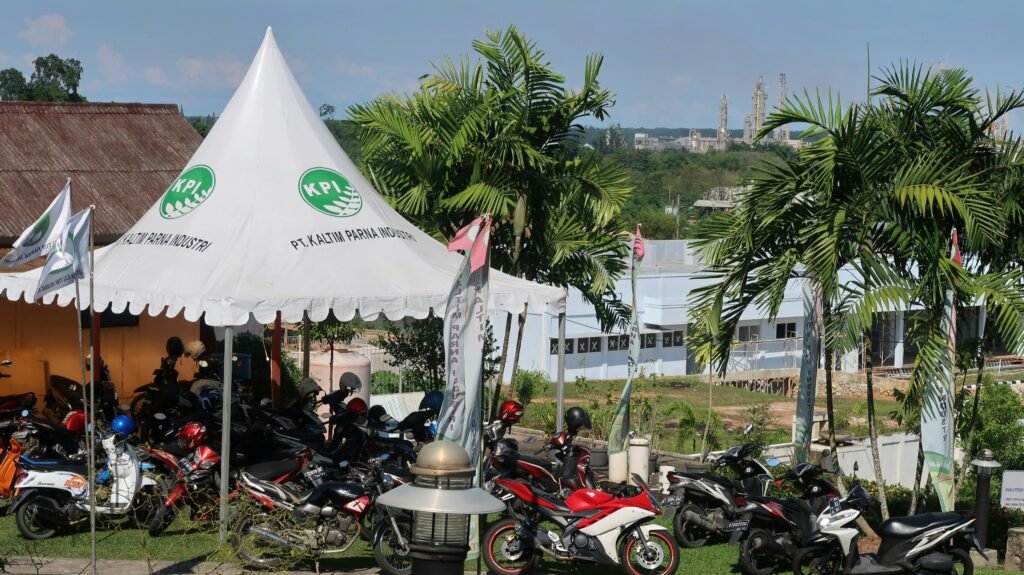
Introduction to Supply Chain Challenges
In today’s complex global market, businesses face a myriad of supply chain challenges that can severely impact their operations. Among these difficulties, disruptions and delays have become increasingly common, often resulting from unforeseen events such as natural disasters, geopolitical tensions, or even global pandemics. These disruptions are not merely inconveniences; they can lead to significant operational inefficiencies, ultimately affecting the bottom line.
Additionally, increased costs associated with logistics and production have arisen as businesses seek alternative suppliers or routes in response to these challenges. Fluctuating transportation costs, tariff changes, and rising material prices further complicate supply chain management, making it critical for companies to optimize their operations effectively. The interconnectedness of supply chains means that even minor hiccups in one area can cascade into larger issues, creating a ripple effect that can halt production schedules and delay deliveries to customers.
Amidst these pressing issues, the necessity for a reliable solution becomes paramount. Streamlining operations is essential for enhancing efficiency and maintaining competitiveness. Many organizations are turning their focus towards fostering direct partnerships with industry stakeholders, suppliers, and logistics providers to mitigate the risks posed by traditional supply chain models. Such partnerships can help build resilience, allowing businesses to respond more swiftly to disruptions and deliver consistent value to their customers.
In conclusion, navigating the complexities of supply chain challenges requires innovative approaches and strong partnerships. By embracing direct collaborations, companies can address the obstacles they face while positioning themselves for sustained growth in an ever-evolving market landscape.
Why Indonesia is a Key Player in Global Supply Chains
Indonesia, strategically located between the Pacific and Indian Oceans, serves as a pivotal conduit for global trade. Its geographical positioning allows it to act as a significant hub for manufacturing and distribution, connecting various markets across Asia, Europe, and the Americas. This strategic advantage has attracted numerous international companies looking to tap into its diverse resources and expanding market potential.
The nation boasts a growing industrial sector that has continually developed over recent years. Key industries such as textiles, electronics, and agriculture showcase Indonesia’s versatility in production capabilities. The textile industry, in particular, has become a cornerstone of the nation’s economic activity, with Indonesia’s rich cultural heritage translating into high-quality, unique products that appeal to international buyers. Furthermore, the electronics sector has shown remarkable growth, with factories increasingly churning out various components essential for modern technologies, reinforcing Indonesia’s presence in global supply chains.
Additionally, Indonesia’s agricultural sector plays a crucial role in not just feeding the local population, but also supplying essential commodities to global markets. As one of the world’s leading producers of palm oil, rubber, and coffee, the country has established itself as a vital source for many industries worldwide. This agricultural strength is further complemented by the government’s initiatives aimed at improving infrastructure and fostering investments, creating a conducive environment for businesses to thrive.
In summary, Indonesia’s strategic geographic location and its burgeoning industrial capabilities render it a critical player in global supply chains. As the country continues to develop its infrastructure and streamline processes, it is poised to attract more foreign investment, thereby solidifying its role in the increasingly interconnected global economy.
The Benefits of Direct Partnerships in Indonesia
Establishing direct partnerships with suppliers and manufacturers in Indonesia can significantly enhance a business’s operational efficiency and overall performance. One of the primary advantages is cost savings. By eliminating intermediaries, businesses can negotiate better prices, reducing overall procurement costs. This direct engagement often leads to bulk purchasing agreements, which can further drive down per-unit costs. As a result, companies can allocate those savings towards innovation and other strategic initiatives.
Additionally, direct partnerships foster improved communication. When businesses collaborate closely with local suppliers, they can share information more effectively, addressing any issues or changes promptly. This enhanced dialogue mitigates misunderstandings that may arise when dealing with third parties, leading to a more streamlined decision-making process. Furthermore, open communication channels help in aligning production timelines with market demand, ensuring that businesses are responsive and adaptable.
Another notable benefit is the potential for faster delivery times. Working directly with manufacturers located in Indonesia allows companies to have a better grasp of inventory management and logistics. They can bypass lengthy shipping times often associated with overseas suppliers, significantly reducing lead times and ensuring that products are delivered to market swiftly. This speed is crucial in today’s fast-paced business environment where consumer preferences can shift rapidly.
Lastly, direct partnerships enhance quality control. By collaborating closely with local manufacturers, businesses can set specific quality standards and monitor their compliance directly. This proactive approach helps in maintaining product quality, thereby increasing customer satisfaction and reducing the likelihood of returns or defects. In conclusion, these benefits underscore the strategic importance of forming direct partnerships in Indonesia, providing businesses with a competitive edge in the global marketplace.
Navigating Cultural and Language Differences
Establishing direct partnerships in Indonesia presents unique challenges, particularly concerning cultural and language differences. The Indonesian archipelago is known for its diverse ethnic groups, languages, and traditions, all of which can influence business interactions. Understanding these cultural variables is essential for navigating potential misunderstandings and fostering effective communication.
Language barriers often pose a significant hurdle for foreign businesses. Although Bahasa Indonesia serves as the national language, there are numerous local dialects that vary significantly across the regions. To overcome these barriers, it is advisable to employ bilingual staff or interpreters who can facilitate clear communication. Additionally, investing in basic language skills can demonstrate respect for the local culture and help in establishing rapport with Indonesian partners.
Moreover, cultural sensitivity plays a pivotal role in building successful relationships. The Indonesian approach to business is often characterized by a collectivist mindset, where relationships and trust precede transactional activities. Thus, it is crucial to invest time in relationship-building, which may include informal meetings, social gatherings, and shared meals. Understanding local customs, such as the significance of greeting rituals and the importance of maintaining a calm demeanor, can foster goodwill and mutual respect between parties.
Additionally, it is essential to familiarize oneself with the local business etiquette. For example, hierarchy is respected in Indonesian companies, and addressing senior executives correctly can pave the way for smoother interactions. Being mindful of body language, such as avoiding direct confrontation and maintaining a soft tone, can further enhance communication effectiveness. Awareness of these cultural nuances will not only help in navigating challenges but will also enrich the partnership experience, leading to more fruitful collaborations.
Identifying and Vetting Potential Partners
When entering the Indonesian market, identifying and vetting potential supply chain partners is crucial for establishing effective operational collaborations. The process begins with comprehensive research to identify suitable candidates who align with your business’s particular needs and objectives. This research should utilize both primary and secondary sources, encompassing industry reports, trade associations, and digital platforms that specialize in local business information. Engaging with local chambers of commerce can also provide valuable insights into potential partners’ reputability and standing within the Indonesian market.
Once potential partners are identified, conducting thorough due diligence is essential. This entails evaluating their financial stability, reputation, and compliance with industry standards. Reviewing their past performance and current capabilities through customer references and case studies can offer further insights into their operational efficiency. It is advisable to employ local consultants who are familiar with the Indonesian business landscape, as they can assist in deciphering market nuances and identifying red flags that may not be immediately apparent to foreign entities.
Moreover, one of the most effective ways to ensure alignment with your business goals and quality standards is to visit the facilities of potential partners. On-site visits facilitate the evaluation of their operations, workforce, and adherence to regulatory requirements firsthand. During these visits, discussions with management and staff can yield a more nuanced understanding of the company culture and operational ethos. This interaction will aid in assessment of their technology capabilities and innovation processes. Ultimately, investing time in this phase of collaboration can help mitigate risks associated with supply chain partnerships and foster a more robust foundation for operational success in Indonesia.
Building Strong Relationships with Indonesian Partners
In the context of overcoming supply chain challenges, developing robust relationships with Indonesian partners is fundamental. The business culture in Indonesia places a high value on personal connections and trust, which are critical in forming sustainable partnerships. Companies looking to navigate the complexities of the Indonesian market must prioritize relationship-building as a strategic objective.
One effective strategy is to engage in regular communication with partners. This involves not just formal meetings and discussions, but also informal interactions that allow for greater understanding and rapport. Building a relationship goes beyond contractual agreements; it requires an investment in time and effort to foster a collaborative atmosphere where both parties can thrive. Establishing open channels for dialogue, such as frequent updates on project statuses or sharing insights into market trends, can significantly enhance trust.
Collaboration is another key aspect of nurturing relationships with Indonesian partners. Working together on projects allows both parties to understand each other’s strengths, capabilities, and operational styles. Joint initiatives can yield innovative solutions that benefit the supply chain, enabling partners to tackle challenges collectively. Additionally, this collaboration can serve as a platform to align goals and expectations, reinforcing the partnership’s foundation.
Participating in local events and activities is also crucial in building strong relationships with Indonesian partners. Engaging in community events or industry gatherings can create opportunities for informal networking and better understanding of the local business context. These interactions help in solidifying bonds as they provide a mutual space for culture exchange and business insight, integral for fostering a long-term collaborative environment.
By prioritizing trust, communication, collaboration, and local engagement, companies can effectively navigate supply chain challenges in Indonesia, ensuring a fruitful partnership that drives mutual success.
Logistics and Transportation Considerations
The logistics landscape in Indonesia presents unique challenges that can impact supply chain efficiency. With its vast archipelago, comprising over 17,000 islands, the country’s infrastructure plays a critical role in the movement of goods. Poorly maintained roads, limited port facilities, and congested urban areas can contribute to delays and increased transportation costs. Addressing these logistics challenges is fundamental for companies looking to establish direct partnerships and optimize their supply chains within Indonesia.
When considering transportation options, it is essential to assess the geographical diversity of Indonesia. Sea transport remains a primary means of shipping products across the islands. However, reliance solely on maritime logistics may not suffice, particularly for time-sensitive deliveries. Hence, integrating air freight services can significantly enhance shipment speed, albeit at a higher cost. It is crucial for businesses to evaluate their product requirements and determine the most efficient mode of transportation to ensure timely delivery to global markets.
Effective management of shipments also requires a deep understanding of customs regulations within Indonesia. The complexity of customs procedures can often lead to unforeseen delays. Working with experienced logistics partners who are well-versed in local regulations can facilitate smoother customs clearance processes. Establishing a robust network with local customs brokers can also streamline the documentation needed for international trade, thus minimizing time spent in transit.
In addition, companies should develop best practices for tracking shipments throughout the logistics lifecycle. Utilizing advanced technology, such as GPS tracking and real-time monitoring systems, can enhance transparency and efficiency. By fostering strong relationships with local logistics providers, businesses can better navigate the intricacies of Indonesia’s transportation network, ultimately leading to optimized delivery schedules and improved supply chain reliability.
Case Studies: Successful Partnerships in Indonesia
In examining successful partnerships that have emerged in Indonesia, it becomes apparent that direct collaboration between local suppliers and foreign businesses can significantly enhance supply chain performance. One notable example is the partnership between an international electronics manufacturer and a local supplier specializing in components. Initially confronted with logistical challenges and cultural differences, the manufacturer opted to establish a joint venture. This strategic decision enabled both parties to share resources while aligning their operational goals, resulting in a streamlined production process. By fostering open communication and trust, they were able to reduce lead times, thus benefiting their overall supply chain efficiency.
Another compelling case is presented by an agricultural company that formed direct partnerships with Indonesian farmers. Faced with unpredictability in crop yields and quality concerns, the company implemented a training program for the farmers to improve agricultural practices. This direct engagement not only empowered the farmers but also led to increased consistency in the quality of produce supplied to the company. By establishing clear guidelines and offering ongoing support, the agricultural firm was able to ensure a reliable supply chain, thereby enhancing its product offerings and market presence.
Similarly, a global fashion retailer discovered that establishing direct partnerships with local garment manufacturers significantly reduced production costs and enhanced their sustainability initiatives. Initially challenged by compliance and ethical sourcing issues, the retailer engaged in collaborative efforts that included sharing best practices and implementing sustainable methods. This mutually beneficial partnership resulted in a reliable supply of ethically produced garments while increasing profitability for both parties. Such case studies illustrate that establishing direct partnerships not only addresses specific supply chain challenges but also cultivates long-lasting relationships between companies and local suppliers, ultimately driving growth and innovation within the industry.
Future Trends: The Evolving Supply Chain Landscape in Indonesia
The supply chain landscape in Indonesia is anticipated to undergo significant transformation in the coming years. Factors such as advancements in technology, evolving global market demands, and the rise of direct partnerships are expected to play a crucial role in shaping the future. The integration of technology into supply chain management is already evident, with automation and artificial intelligence enhancing efficiency and decision-making capabilities. As Indonesian businesses invest in smart logistics and data analytics, they will become more adept at responding to market fluctuations and optimizing operations.
Furthermore, the increasing emphasis on sustainability is compelling companies to rethink their supply chain strategies. Consumers are prioritizing eco-friendly products and ethical sourcing, which necessitates transparency in supply chains. Businesses in Indonesia that embrace these trends and form direct partnerships with suppliers will likely gain a competitive edge. By collaborating closely with local producers and service providers, companies can not only streamline their operations but also foster a resilient supply chain that can withstand external shocks such as pandemics or trade disruptions.
Additionally, the global market is evolving, with shifts in consumer preferences and economic dynamics altering demand for goods and services. As Indonesia continues to position itself as a vital player in regional and global supply chains, firms must remain agile and adaptable. This adaptability will be crucial in leveraging new market opportunities while addressing challenges, such as fluctuating commodity prices or changing regulatory environments.
Ultimately, direct partnerships will emerge as a vital strategy for Indonesian businesses aiming to thrive in this evolving landscape. By fostering collaboration and leveraging technological advancements, companies can enhance their supply chains, ensuring that they not only meet current demands but also anticipate and shape future trends.









